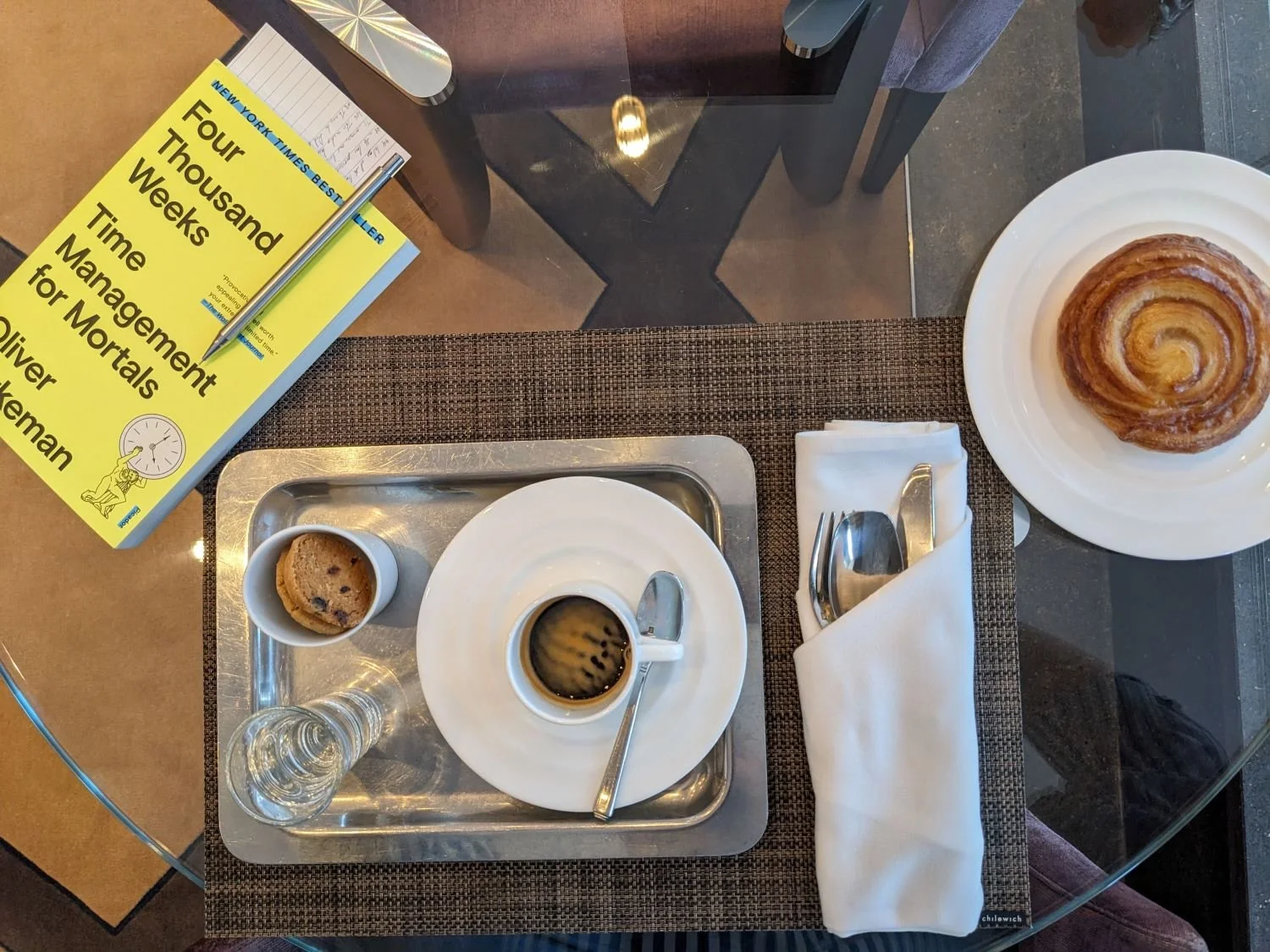It Is What It Is, Boredom and All
From Four Thousand Weeks
I hinted at this one earlier with the recent letter about work and an interesting trend of business leaders becoming philosophers in this quest for “life” and/or happiness. But this book really does stand out from the rest.
Four Thousand Weeks: Time Management for Mortals brings a piercing look at what time management is. I find it to be a good blend between philosophy and self-help all with a tone of “look, I’ll just be straight up about this” kind of attitude.
(Also let me be straight up about this corny book + coffee photo I took. Behold:)
Acknowledge
One of Burkeman’s essential tenets is an attitude of “we might as well face it; in fact we would be better off just facing it” when it comes to the base reality that we have a limited amount of time in this life. He works through ideas of productivity and finite-time mindsets but eventually works his way to boredom.
I’ve had my mind changed about boredom. Before it was a brutal thing to experience, in terms of shame that I ought to be doing something and in terms of failure of not being able to come up with something to do at all. I can’t recall exactly when this change began in me at the moment, but I do know this segment jumped out to me right away:
This is why boredom can feel so surprisingly, aggressively unpleasant: we tend to think of it merely as a matter of not being particularly interested in whatever it is we're doing, but in fact it’s an intense reaction to the deeply uncomfortable experience of confronting your limited control. Boredom can strike in widely differing contexts- when you’re working on a major project; when you can’t think of anything to do on a Sunday afternoon; when it’s your job to care for a two-year old for five hours straight- but they all have one characteristic in common: they demand that you face your finitude. You’re obliged to deal with how your experience is unfolding in this moment, to resign yourself to the reality that this is it (107)
This sounds like the language of “settling” (which is also a topic of the book), but I think this is a very positive relationship to boredom and life. For me, the matter has changed from “am I doing enough” with my routines or projects to “how is this already enough.”
I appreciate this take on boredom, and I do so even more with this moment nearer the end of the chapter:
The way to find peaceful absorption in a difficult project, or a boring Sunday afternoon, isn’t to chase feelings of peace or absorption, but to acknowledge the inevitability of discomfort, and to turn more of your attention to the reality of your situation than to railing against it (109)
After reading this, I’ve since taken to making a point to simply stop and voice aloud that I am at the limit of something, that I don’t have control over this, and this is all the same enough for me. It’s the challenge of being able to look at a moment, look into boredom, and realize that I am trying to distract myself away from the reality that this moment is also a part of a beautiful life.
More soon,
Trevor
Now-reading affiliate links:
